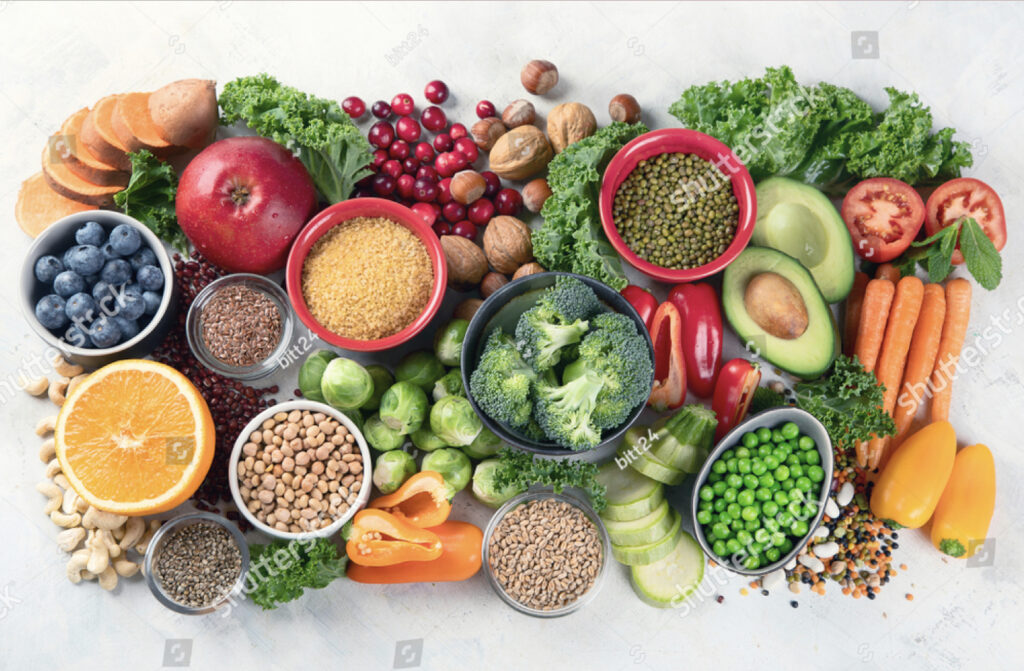By: Angelie Adlakha

Pic credit : Shutterstock
How Much Protein Is Enough?Are We Becoming a Protein-Obsessed Society?
In recent years, protein has gained immense popularity in the health and fitness industry. It is widely regarded as a vital nutrient essential for building muscle, aiding in weight loss, and promoting overall well-being. As a result, society has become increasingly protein-obsessed, with protein shakes, flour, balls, bars, and powders flooding the market. A combination of diet fads and clever marketing tactics has got us here. However, amidst the “protein frenzy”, it is crucial to evaluate whether our obsession with protein is warranted and if we truly understand how much protein our bodies actually need.
Protein: The Building Block of Life:
Proteins are arguably one of the most important, besides fat of the three macronutrients, alongside carbohydrates, that our bodies require in significant amounts.They are the only micronutrient to contain nitrogen, without which we cannot grow or reproduce. They play a vital role in numerous bodily functions, including tissue repair, hormone production, enzyme synthesis, and immune system support. It is composed of amino acids, which are necessary for the body to repair and build new tissues.
Recommended Dietary Allowance (RDA) for Protein:
The Recommended Dietary Allowance (RDA) for protein varies depending on age, sex, weight, and activity level. According to the (USDA), the minimum RDA for protein is approximately 0.8 grams per kilogram of body weight for adults.To put things in perspective, people in Canada and U.S get about 90 gms, Europeans 80 gms, Chinese 75 gms and Indians a mere 10- 30 gms per day on an average.
Factors Influencing Protein Requirements:
Several factors influence an individual’s protein requirements. Athletes, for example, may require higher protein intake to support muscle growth and repair. Pregnant women, individuals recovering from injuries or illnesses, and older adults also need additional protein for optimal health. Protein requirements can also be influenced by factors such as body composition, activity level, and metabolic rate.
The Protein fetish:
While protein is undeniably important, the “protein worship” in our society has raised concerns. The media, marketing campaigns, and celebrity endorsements have contributed to the notion that consuming copious amounts of protein equates to a healthier and more muscular physique. This perception has led to a surge in the consumption of protein supplements, often replacing whole food sources and neglecting the importance of a balanced diet, also increasing the quantities of food consumed, leading to unnecessary overeating and obesity, which has now been magnified by “protein anxiety”.
The Dangers of Excessive Protein Intake:
Consuming excessive amounts of protein may have potential drawbacks. High-protein diets can strain the kidneys and liver, especially in individuals with pre-existing kidney conditions, which many may not even be aware of.
Beyond the physical damage, this protein fixation can lead to severe eating disorders too.
Moreover, focusing solely on protein intake may lead to an imbalance in other essential nutrients. Neglecting a diverse range of fruits, vegetables, whole grains, and healthy fats can result in inadequate vitamin and mineral intake.
Striking a Balance:
We have to remember that our plate remains the same, and adding protein senselessly is not necessarily “healthy”,one needs to wisely distribute the macronutrients according to your health and need.
Aiming for a variety of nutrient-dense whole foods is crucial to meet all of our body’s nutritional requirements. While protein is undoubtedly important, it is equally crucial to consume adequate amounts of fats and carbohydrates.It will be wise to entail the help of a #healthcoach, in case managing your plate becomes overwhelming.
After all, on the internet one will get great guidelines and frameworks to help create a healthy meal plan but the specifics of the ratio, personal tastes and preferences and health goals can only be addressed by a #healthcoach. Especially if you have been following a regime with little or no success.
A balanced diet that includes lean meats, fish, legumes, whole grains, fruits, and vegetables will provide the necessary protein while ensuring the intake of other essential nutrients.
Protein is undoubtedly a critical nutrient that our bodies require for optimal function. However, the “protein mania”, in society has led to misconceptions and a myopic view to nutrition.
It’s high time we disentangle from the complex lives we have gotten ourselves into.
Have you ever wondered that you may not be getting enough protein because you are eating too much of everything else ?? think about that for a minute – humans are bingeing in an attempt to extract the protein we need.
Understanding our individual protein needs, based on factors such as age, sex, weight, and activity level, is vital. Striking a balance between protein intake and other essential nutrients through a varied diet is key to maintaining overall health and well-being. Rather than fixating solely on protein, let’s embrace a holistic approach to nutrition that encompasses all the necessary components for a healthy lifestyle.
